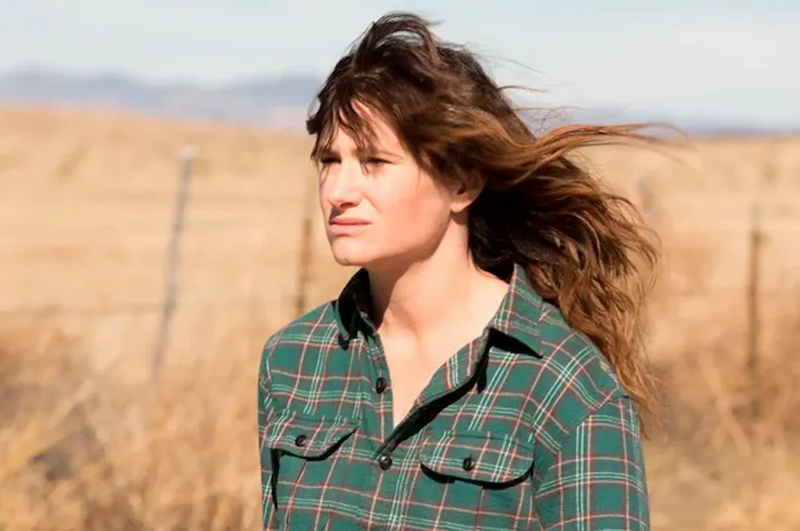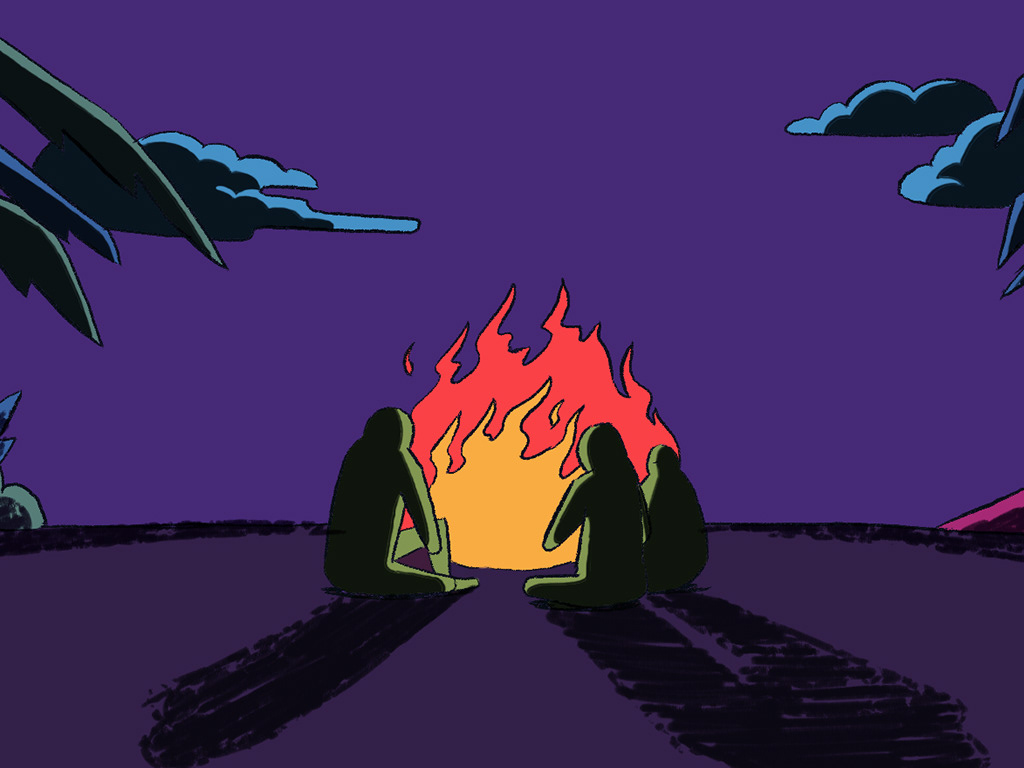"Albatross Soup" combines colorful animation and clever editing to take viewers on a condensed acid trip through a popular lateral thinking exercise. Instead of listening to me ramble on, watch it yourself. It's only 7 minutes!
Interview with Winnie Cheung
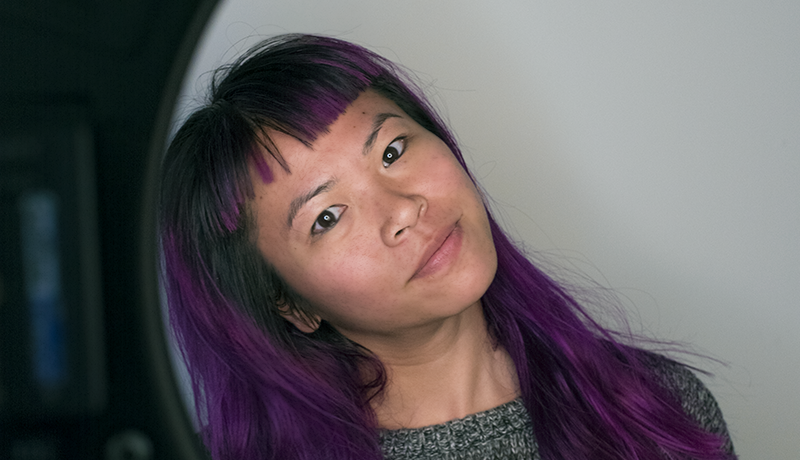
Woman in Revolt: How did you first hear about this lateral thinking puzzle? I had no idea what it was until I saw your film.
Winnie Cheung: I first heard about it from my friend. It was kind of like this bar game or house party game that came up when groups of people were together. He came back from UCLA after interviewing for a Ph.D. position in neurocognitive science, which is a branch in the psychology department that breaks down how our brains problem-solve. They played this game in California, he brought it back to New York, then everyone in our friend group started to play. It was really funny to listen to the different guesses because sometimes they have nothing to do with the riddle but reveal a lot about the person. I was drawn to that because unlike most stories, the protagonist is just something you project onto... he doesn't have his own attributes and qualities that help drive the story.
WiR: The whole thing feels like a good metaphor for the artistic process and the benefits of self-imposed limitations. You have the bones for the story and know the way it needs to end but the how and the way is up for debate. Does that make sense? I'm running on fumes today.
What I've learned over time is that a good story is either a) one you've never heard before or b) one you've heard many times but in a different way. People who have played Albatross are excited to see how it unfolds and those who haven't can guess along with the participants in the film. It was a test of giving myself a limitation and seeing how far I could go with it.
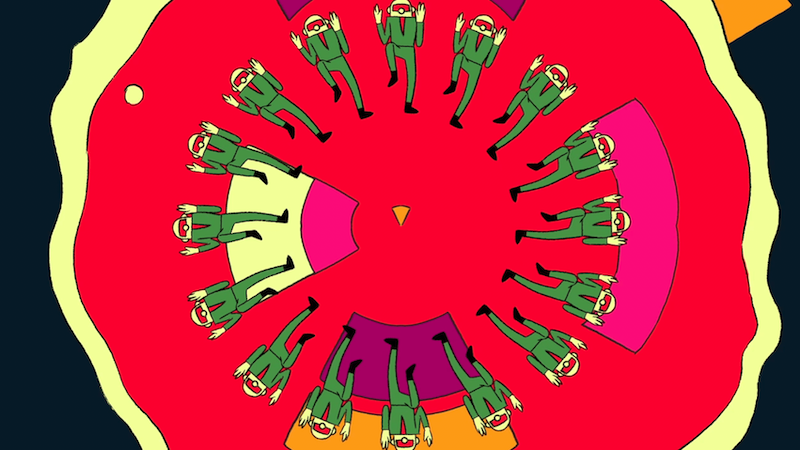
WiR: Even if you know the answer to the riddle, you can't possibly imagine the weird and beautiful animation that accompanies it in your film.
All of that credit goes to Fiona [Smyth], our illustrator, and Masa [Nakamura], our animator and director. The beautiful part about creativity is committing to the prompts that you're given. A lot of these questions are so left field and unmotivated but committing to animating them just makes sense after a while. We had no idea what people were going to ask.
WiR: And speaking of those people asking questions... How did you find them?
About half of them were friends. I knew that I really wanted texture in the voices - accents and evidence of different age groups - so I asked Alex Young, my friend who is a podcast producer, to help me cast for more voice diversity. I love all of the kids; they were hysterical.
I like that we hear them but don't see any visual representation. It forces you to create a picture in your mind of who they might be.
Since you worked with an established illustrator who has her own distinct style, how did you decide on the look of the film? As a director, how much input and guidance do you provide?
Something I've discovered is that there aren't as many differences between live action and animation as I initially thought. (This is my first animated film.) 90% of the work is just casting... you have to find the right people. Fiona's work already has a really creepy vibe, so it perfectly lends itself to this dark story. We had very few rounds of back-and-forth during the process and it was less about the style, more about tweaking the characters to make sure they're in service to the story.
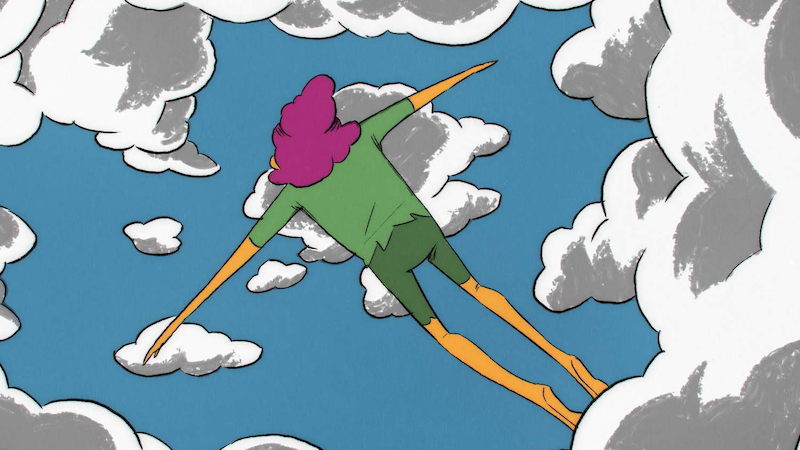
How many animators did you use?
One!
One?!
Yes [laughs]. There were two additional animators who came in at the end to help finish it off, but this project is definitely Masa's baby. I would have loved to bring on more animators, but our budget was tiny and we needed to find a beast who could do it all. Masa is not just an animator, he's someone who interprets a story and makes it his own.
Animation is something I truly can't comprehend. I'm incredibly impressed with anyone who has those skills.
I think they have to get into a really deep state... Masa especially, since he animated everything frame by frame. I also can't fathom it! It's not easy to express the nuances of each character and their emotions in a way that makes it easy for the audience to understand.
Do you think you'll make another animated film? Was this a good experience for you?
It was such a good experience and I would love to make another one. Experimenting with different techniques is something I really enjoy. I think it would be fun to do something that mixes everything... maybe a little bit of live action and animation together. What's that movie with Jessica Rabbit?
"Who Framed Roger Rabbit" (Zemeckis, 1988).
Yes! I would love to try making something like that.
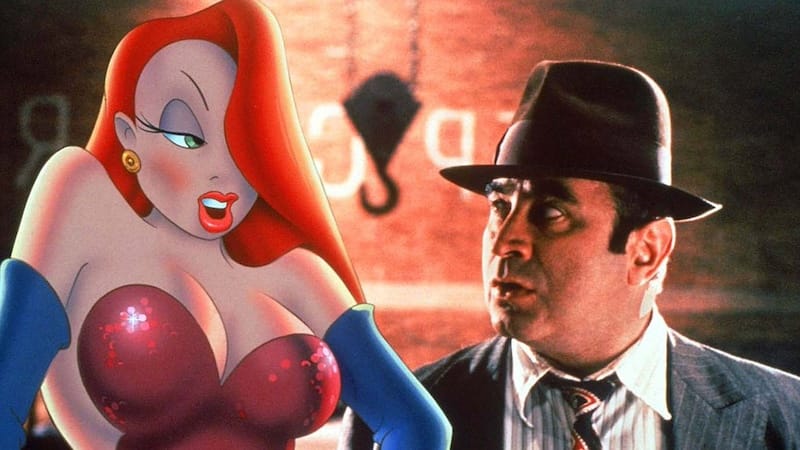
I can't really think of any recent films that combine animation with live action. I'm racking my brain.
I think it's because we've moved into the CGI world. When we want to create something from our imagination, it's generated by a computer instead of hand-drawn.
A definite bummer.
Agreed. I think CGI is often more realistic but there's something unique and special that we get out of hand-drawn animation.
Did you see "Spider-Man: Into the Spider-Verse" (Persichetti, Ramsey, Rothman, 2018)? That film was innovative as hell.
I loved it so much. I hope that different styles of animation will be celebrated more in the future in America. It's different in Europe because they financially support animators. There aren't any animation grants in America... you have to work on a TV show or movie in order to make a living.
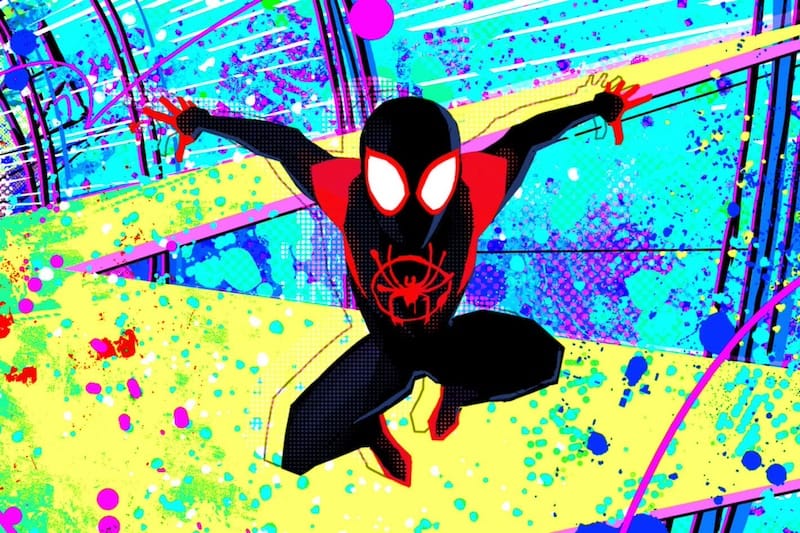
That's so depressing... that we're willing to let certain styles of art die because we're not willing to fund them.
It's up to private, money-making entities to dictate the taste and style. I went to an animation festival in Berkeley just a few months ago and it was such a pleasure to see all of the international animations that are personal projects. I hope we're somehow able to move more in that direction.
Me too. It's sad to see people who are barred from doing what they truly love because of money.
It's not that all of these animations are so amazing technique-wise, but when one person has something to say and they do it their own way, that alone is special. If young people don't see that, it's hard for them to even recognize it as an option. It's easy to feel like you can only do what you're shown.
How did you get into filmmaking? Did you study it in school?
I have an interdisciplinary degree. It wasn't really a major offered by the college, but a thesis that I invented. I chose all of the classes and had to write a paper to support it in order to graduate. I didn't go to film or art school, but I always knew that I wanted to tell stories. I got my first film gig through Craigslist! I was more concerned with making a living and getting paid, so film school wasn't an option. I decided to just find a job that vaguely resembles what I wanted to do, which is what led me to working in commercials for a long time. I'm happy that I did this because commercial work requires a similar skill set and since there's a lot of money involved in the production, it made my work look really good. I was able to save my money and shift over to independent filmmaking.
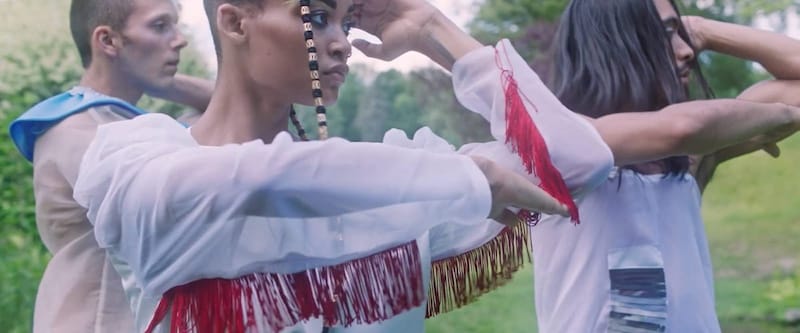
You have to do what works for you. Some people pursue their art with a single-minded devotion and are willing to be poor for a long time to make their dreams come true. That path would give me far too much anxiety, so I definitely relate much more to the pragmatic approach that you've described.
My upbringing was always very pragmatic and I'm thankful that my parents raised me this way. I might have had a little bit of a slower start, but everyone has their own way of getting there... I wouldn't have it any other way.
Tell me about your upcoming feature. I read a quick synopsis of it and am intrigued.
It's about this girl who is part of an all-female motorcycle gang and has repressed trauma from when she was molested as a child. She doesn't remember, but it lives in her body and manifests as a slimy swamp monster throughout the film. It's live action but has similar themes to the short: guilt and anthropomorphism.
I just met my friend's (therapist) boyfriend the other night and spent far too long asking him questions about trauma and repression. I find both of those areas fascinating and am very into the concept for your feature.
The hardest part about describing trauma to other people – and let me be clear, I haven't gone through anything that intense myself, but I've interviewed people who have – is that it's invisible. Other people can't see it but it's something you have to live with every day. With the feature, I wanted to make that trauma tangible and help people understand it.
I think about depression in the same way. It's something that follows me around constantly, no matter what my appearance suggests. It's hard to satisfactorily explain it.
People are often so quick to dismiss it. Like, "Oh, just don't think about it." We tend to sweep these things under the rug and not talk about them. What ends up happening is that we all have to perform for each other, even for our friends and family, to maintain this status quo.
We're all just longing for people to accept us as we are but being vulnerable is tough. On a more positive note, tell me about some of your favorite female artists and creators.
I try not to look towards filmmakers as influences. It's easy to start imitating, so I try to get inspiration from other disciplines. I love Frida Kahlo and the way she takes her own personal story and manifests it in this world that everyone can experience. Her mind, imagination, and use of color are all hugely inspiring to me. I have this book right now that I absolutely love and have been referencing a lot lately. It's called "Radical Women: Latin American Art, 1960–1985" (eds. Fajardo-Hill and Giunta, 2017). It features all of these women who use performance art to depict their political struggles.
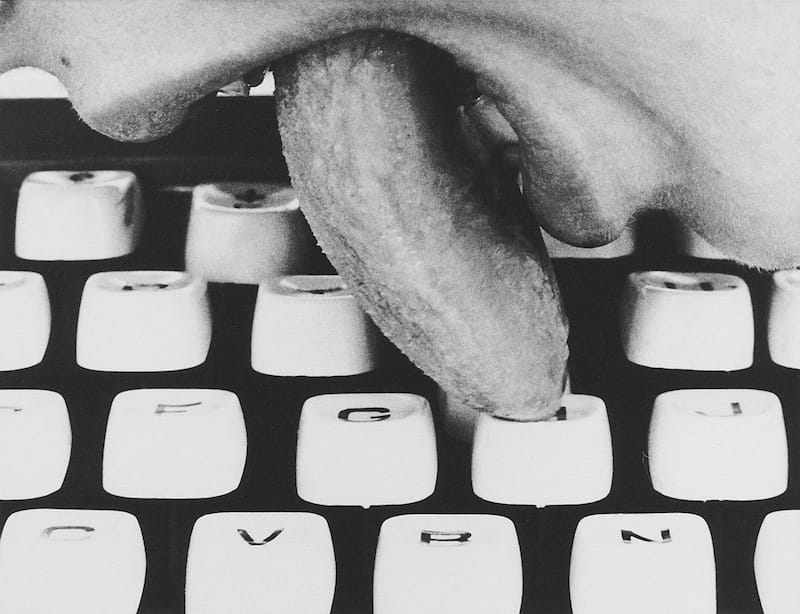
I finally watched "I Love Dick," Jill Soloway's show on Amazon Prime a few weeks ago. I had some issues with it but appreciated how much it features female performance artists and avant-garde filmmakers.
Really? What were your issues with it?
That sounded harsher than intended. The show is a solid adaptation, but I prefer the book. Chris seems more substantial and like less of a fuck-up on paper.
One thing I remember about that show is that they managed to make some scenes unexpectedly sexy. Like, I'm a little turned on but I don't know why.
I found myself super attracted to Kathryn Hahn's Chris even though she was constantly fumbling around and doing self-destructive shit.
I think that's super realistic. We're attracted to people who make poor choices all the time.
